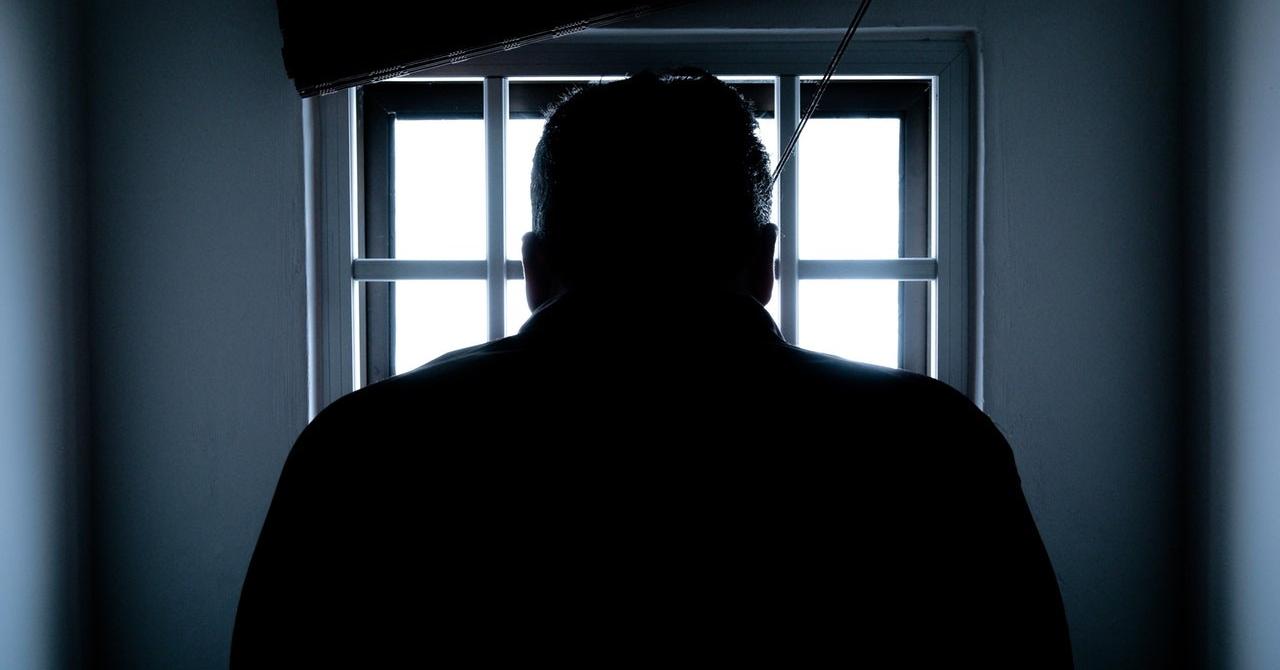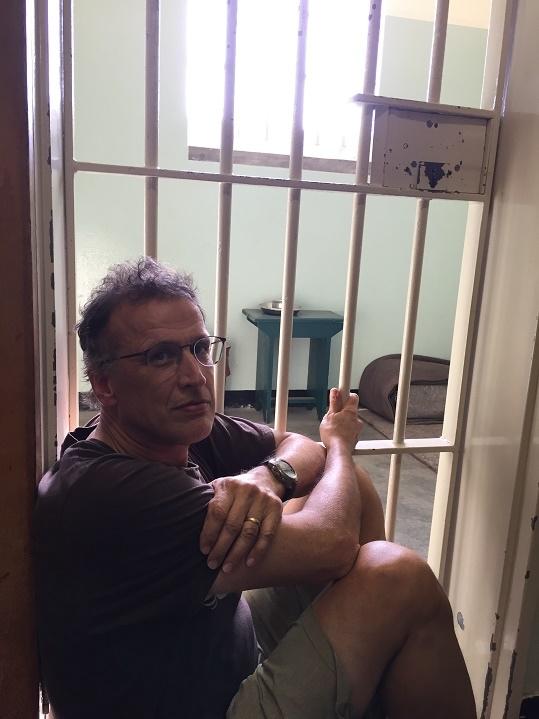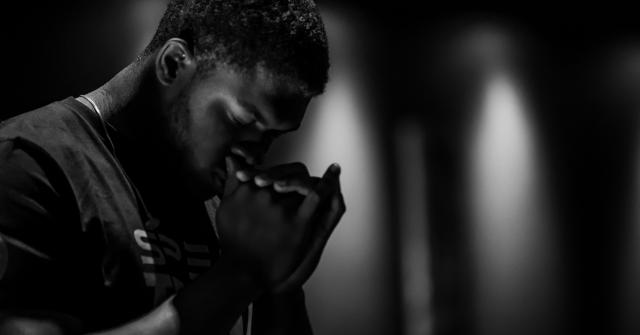
Advocacy alongside Ex-Offenders ... as a Kindness Leading to Repentance
Twenty-two years ago, my wife Gracie and I founded Tierra Nueva in Burlington, Washington, among migrant farm workers from Mexico.
It was then that I was simultaneously recruited to serve as chaplain to Spanish-speaking inmates in Skagit County Jail. Since our earlier work with Tierra Nueva in Honduras involved leading Bible studies with peasant groups that often included local outlaws, I felt comfortable accepting this position. After three months serving exclusively Mexican inmates, I was asked to take on chaplaincy to the entire jail population. This was my induction into a whole new world that has broken my heart and become the heartbeat of what we now do inside and outside the jail and prison system.
Tierra Nueva now includes a team of 18 or so ministry workers who lead regular gatherings with women, men and juvenile jail inmates and with Spanish-speaking prisoners in a nearby state prison. Our entire ministry now revolves around inmates, ex-prisoners and immigrant workers. Included in Tierra Nueva’s outreach is a Family Support Center, gang outreach, migrant farm worker chaplaincy, our leadership training center (The People’s Seminary) and a growing Sunday worshipping community.
Advocacy before the local authorities is a regular activity of our staff that comes naturally as we walk with people pastorally. The following story comes from Tierra Nueva’s growing focus on serving people recently released from prison.
Washington State’s Department of Corrections (DOC) typically keeps people released from prison sentences under probation for periods of time ranging from two months to several years—depending on their crimes. It is difficult for people who have experienced their sentences under DOC custody to see probation officers as on their side or in favor of their success. Men and women coming out of prison have a myriad of pressures upon release, including finding housing and employment with the label “felon” or “ex-con,” paying off fines that have gone into collection, getting drivers licenses re-issued that have been suspended due to driving infractions or not paying child support and re-connecting with estranged family members and children.
Probation officers require regular check-ins during business hours, which interrupts work and requires travel. There is often a level of resentment towards the State for requiring supervision, which is technically part of their prison sentence. People too often miss these appointments, triggering threats of further imprisonment. Increasingly, ex-prisoners are being charged by the DOC with “escape,” and pursued by heavily-armed authorities who function as bounty hunters.
I've often felt like a Kingdom of God bounty hunter...

I have accompanied a man I’ll call Mike (not his real name), on his journey since I met him in our local jail in 1994 when he was charged for participating in a drive-by shooting. He went off to prison at that time for several years and has since done other prison sentences.
Mike is a Caucasian man who grew up on the streets of Skagit County, adopted as a young teenager into the homes of Mexican immigrant youth. Mike became involved in gangs along the way and began dealing drugs. This landed him in the juvenile detention system and eventually in the Washington State prison system. I have pursued him consistently over more than twenty years, reading the Bible and praying with him when he’s been in jail, keeping tabs on him and responding to his occasional pursuits of me during times of crisis. I have often felt like a kind of Kingdom of God bounty hunter, and Mike says he has greatly appreciated it. “You are like a dad to me, Bob,” he told me recently through the glass in the jail visiting booth.
Mike was most recently released over two years ago, using Tierra Nueva’s address as his release address, as he had planned to go through our recovery program that was at that time based in the building. Financial and family pressures soon got the best of him and he decided to return to a business he knew well that had recently become legal—growing marijuana. At the same time, he missed his meetings with the DOC, ignoring the threats of sanctions.
Heavily-armed DOC agents surrounded our building looking for him, and he managed to elude law enforcement for over two years. The DOC charged him with “escape” and began pursuing him in earnest. Mike owned a number of cars that he made sure were registered in the names of friends who didn’t have active arrest warrants. He maintained his grow operations and kept in close contact with his daughter, keeping out of more dangerous pursuits of the past. I learned the places he frequented, and we found ways to meet up to talk and pray together.
“Good luck. But I wouldn’t get my hopes up...”
Mike’s girlfriend, who had relapsed into her heroin addiction, gave birth to their baby in the local hospital, who alerted Child Protective Services. They put a hold on the newborn, who needed special medical attention as he was born with heroin in his system. Mike reached out to me saying he wanted to turn himself in to the DOC and comply, so he could get custody of his son. He was afraid that the escape charge might carry a serious sentence. I offered to make contact with the DOC to find out about this charge and facilitate his turning himself in.
I talked with a clerk at the front desk of the DOC, and learned that the local director had been increasingly filing escape charges on people like Mike with the county Prosecutor. I was informed that I would have to talk personally with the director about his case. A female law-enforcement officer in a green uniform with a bullet proof vest and big badge came out the door just then and I asked her the name and phone number of her chief. “Good luck,” she told me. “But I wouldn’t get my hopes up.”
I called the head official and made an appointment to see her the next week. The day came and I met up with the chief in the DOC’s waiting room. She was formal and tough, politely shaking my hand before ushering me through the security door and into her office. She herself was dressed in the same green military-like uniform as the officer I’d met the week before. I explained my long history of accompanying Mike as his pastor, of his growing openness, changes I had witnessed and of the recent birth of his son and his desire to turn himself in and be in full compliance. I asked the woman if she had filed an escape charge and if so how long the standard sentences were and whether there was a possibility of her withdrawing the charge.
She wouldn’t confirm that she’d filed an escape charge, but since I’d gotten confirmation elsewhere I told her that I knew she had filed the charge and asked if she would consider withdrawing it if Mike turned himself in that same day.

“If you are trying to negotiate something for Mike I can assure you that there will be no negotiating,” the woman told me sternly. “Tell your friend that his only option is to turn himself in.”
I told her that I was in full favor of Mike’s compliance with DOC and only wanted to make it easier for him and them to turn himself in. She looked at me suspiciously and asked if I was aware of any criminal activity he was engaged in currently. I told her that I knew about his past activities but didn’t think he was involved in any criminal activity but couldn’t guarantee it. She asked me if I knew where he was and I told her that I saw him from time to time but didn’t know where he was living. At this point she looked at me straight in the eyes and spoke sternly and threateningly.
“Listen, Mr. Ekblad, if you know of Mr.______’s whereabouts, we could have you arrested for aiding and abetting a fugitive.”
I looked her in the eyes and surprised myself with both my boldness and the anger that was rising up inside.
“Don’t threaten me,” I told her. “I have been pastoring people like Mike for 22 years. I know the laws, my rights and my responsibilities. So do not try to intimidate me.”
She stood up and pointed to the door and said in a commanding voice: “This meeting is over. It’s time for you to leave my office now.”
“Gladly,” I said, and stood up calmly and went out the door and began walking down the hall past other offices, the official following closely behind. Right before leaving through the security door I turned and said some final words: “I am sorry that you won’t show mercy, that your heart has become so hard.”
Once out in the waiting room my heart was beating in my chest. I could feel the rage and powerlessness that ex-prisoners must feel as they deal with State officials. Just then a young man covered in tattoos who I knew from the jail came in for his appointment. He smiled, glad to see me and my heart was warmed.
I called Mike as I drove away and reported my conversation to him, telling him I hoped I didn’t make things worse for him. I warned him to be sure and keep his hands in the air if they eventually catch him.
“Don’t give them any excuse to pull the trigger,” I warned.
“Wow, Bob, thanks so much for all you do for me. That’s amazing! I don’t think it will get me into any more trouble than I’m already in. And I’ll be careful, for sure,” he said.
Mike continued to elude the DOC for the next six months. He was finally caught and sent back to prison for a month-long penalty. He told me that he found himself suddenly surrounded by officers from the FBI, the DOC and local law-enforcement, all with guns aimed at him.
“I remembered your words which I always take as coming from God, Bob. I grabbed my dog with both arms, so they could see I couldn’t reach for anything else. To tell you the truth Bob, I am relieved to finally have been caught,” he told me through the glass in Skagit County Jail’s visiting booth. Now he’s in solitary confinement back in our local jail, facing drug charges that he’s sure he can beat. In my last meeting he told me that he was given a thick file to look over to prepare his own defense.
“In that file I found a verbatim report from the DOC official that documented your meeting with her,” he told me with a smile.
“Thanks so much for that, Bob,” he said. “It means a lot!”
Like Jesus, we seek after lost sheep til we find them
Today there’s an urgent need for Christians to join the ranks of Jesus’ bounty-hunter followers. Like Jesus, we seek after lost sheep until we find them. Unlike probation officers and other law-enforcement agents who carry them back to jail or prison, our focus is to bring them into sheep-pen churches where we celebrate their return. Rather than emphasizing compliance with the threat of fines and other sanctions, our focus is on comforting, encouraging and defending (1 Cor. 14:3). We engage in the ministry of the Holy Spirit, who is called the Defender, Advocate or Helper in John’s Gospel (John 14:16, 26; 15:26; 16:7). The Greek word underlying this is paraklete—meaning the one who calls out from alongside.
Rather than siding with the system focusing on requiring compliance with laws, Jesus-followers must be first and foremost friends of sinners, embodying Christ’s unconditional love. This friendship certainly includes helping people do what’s necessary to stay free and rebuild their lives. However, let us be sure that our actions on behalf of people are in alignment with the God who consistently stood with the accused over and against the accuser, offering salvation by grace to the undeserving.
Embodying the kindness of God as Jesus did is more effective than the strictness of our current legal systems. Jesus-like kindness will lead to repentance and restoration, and the Kingdom of God will come







